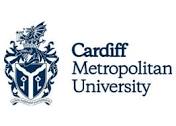This degree will undergo a periodic review in 2023/4 to ensure the course content is and remains current. Should any changes to course content be made as a result of the review, all applicants will be informed once changes are confirmed.

The BSc Economics degree has a strong emphasis on critical understanding and application. The Government Economic Service, the largest employer of economists in the UK, has publicly criticised economics training in higher education for not putting enough emphasis on understanding and application.
Thus, one of the reasons they have not been able to fill their vacancies. Therefore, we are proud to be the first new university to adopt the new CORE curriculum.
This curriculum develops students to appreciate the application of economics to a range of problems in a variety of contexts, including social, political and environmental issues.
Our Economics tutors are specialists in Labour Economics, Regional Economics, International Political Economy, Financial economics, Energy Economics, Game Theory, and Economics of Crime. They work with organisations such as the Welsh Government and Government Economic Service, to ensure our curriculum is cutting edge and relevant.
This degree will undergo a periodic review in 2023/4 to ensure the course content is and remains current. Should any changes to course content be made as a result of the review, all applicants will be informed once changes are confirmed.
100% of graduates in work or further study within 15 months of graduation (Graduate Outcomes Survey ?2023).
Course Content:
Please note that optional modules are delivered subject to demand and availability.
Sandwich Degree Programme: Students on the sandwich modes complete a 20-credit level 6 module which consists of a full year’s secondment at an employer in the local area or the area local to the student’s home.
Learning & Teaching:
We are committed to providing you with the necessary support to enable you to realise your full potential. Our innovative teaching methods include experiments and the very latest teaching materials. Modules are typically taught through a mixture of 2-hour lectures per week and 2-hour seminars/workshops per week. All modules are supported through Moodle and Leganto, the virtual learning environment.
Entry Requirements? & How to Apply:
About
Cardiff Met is proud of all its alumni and we continue to support you as you embark on life after university.
We provide early career guidance for recent graduates and aim to keep you connected throughout your career.
We also provide opportunities for you to inspire our students by speaking at events or offering work experience opportunities, and this is just the tip of the iceberg!
We love hearing about where life has taken you since graduating and keeping you up to date with all that's going on at Cardiff Met.
Our history
Our history traces back to 1865 when the School of Art first opened in the Old Free Library in Cardiff.
Since we developed into a university, we have remained rooted in Wales while providing practice-focused and professionally oriented education to students from around the globe.
The institution has gone through numerous name changes over the years, eventually becoming what we know today as Cardiff Metropolitan University:
University of Wales Institute, Cardiff (UWIC) (1996 - 2011)
Cardiff Institute of Higher Education (1988 - 1996)
South Glamorgan Institute of Higher Education (1976 - 1988)
Cardiff College of Food Technology and Commerce (1971 - 1976)
Cardiff College of Education (1970 - 1976)
Llandaff College of Technology (1970 - 1976)
College of Commerce (1968 - 1971)
Reardon Smith Nautical College (1956 - 1970)
Cardiff College of Food Technology (1957 - 1971)
Llandaff Technical College (1954 - 1970)
Cardiff College of Art (1949 - 1976)
Cardiff Teacher Training College (1945 - 1970)
School of Nautical Cookery (1911 - 1973)
Cardiff College of Technology and Commerce (1949 - 1961)
Cardiff Technical College (1916 - 1949)
Cardiff Technical School (1889 - 1916)
Cardiff School of Science & Art (1865 - 1916)
© 2025 coursetakers.com All Rights Reserved. Terms and Conditions of use | Privacy Policy